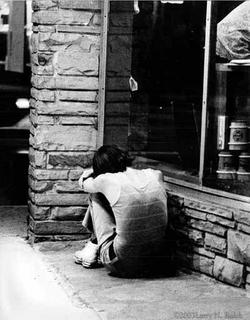The Absurdity of Life Without God, Pt.1 *OR* Celebrity Deathmatch No.1: Pascal vs. Russell

Blaise Pascal, French mathmetician and physicist, commented on the human condition in his Penses. He imagines what sense we can make of our existence in a seemingly godless universe.
I see the terrifying immensity of the universe which surrounds me, and find myself limited to one corner of this vast expanse, without knowing why I am setPascal portrays the apathy of men who, in the face of such questions, seek mind-numbing diversions and cannot be bothered to take one step towards discovery. Are there any more significant questions in life than these? With this backdrop, Pascal goes on to lay out his famous "wager" argument. Given a 50/50 possibility that God exists, we should bet that he does, since we will lose nothing if we are wrong, and we will enjoy infinite gain if we are right.
down here rather than elsewhere, nor why the brief period appointed for my life is assigned to me at this moment rather than another in all the eternity that
has gone before and will come after me. On all sides I behold nothing but infinity, in which I am a mere atom, a mere passing shadow that returns no more. All I know is that I must soon die, but what I understand least of all is this very death which I cannot escape.
However, if there is no God, then there are no answers for these questions other than those we invent by make-believe. Life demands either suicide or the charade of a children's fantasy. Any atheist who claims otherwise is deluded or inconsistent. As Bertrand Russell wrote:
Amen, Professor Russell.That Man is the product of causes which had no prevision of the
end they were achieving; that his origin, his growth, his hopes and fears, his
loves and his beliefs, are but the outcome of accidental collocations of atoms;
that no fire, no heroism, no intensity of thought and feeling, can preserve an
individual life beyond the grave; that all the labours of the ages, all the
devotion, all the inspiration, all the noonday brightness of human genius, are
destined to extinction in the vast death of the solar system, and that the whole
temple of Man's achievement must inevitably be buried beneath the debris of a
universe in ruins--all these things, if not quite beyound dispute, are yet so
nearly certain, that no philosophy which rejects them can hope to stand. Only
within the scaffolding of these truths, only on the firm foundation of
unyielding despair, can the soul's habitation henceforth be safely built.


2 Comments:
Pascal's Wager is nonsense.
http://atheism.about.com/od/argumentsforgod/a/pascalswager.htm
"if there is no God, then there are no answers for these questions other than those we invent by make-believe."
As make-believe as gods are.
I finally checked out the link you posted, and it is interesting. However, it criticizes the argument for something it was not intended to do. Pascal's wager is simply intended to pit theism against atheism. You don't have to accept a system of doctrine to be a theist -- Antony Flew is a great example.
Another thing that could be said is that the argument must be read in it's historical context. For Pascal, Christian theism was assumed. It was (and remains) the most viable theistic world view.
The wonderful thing about Pascal's wager is that it has remained one of the most important arguments for God's existence. Anyone who dismisses it is simply ignorant. Almost every philosophy textbook on the market will include some version of Pascal's wager.
Post a Comment
<< Home